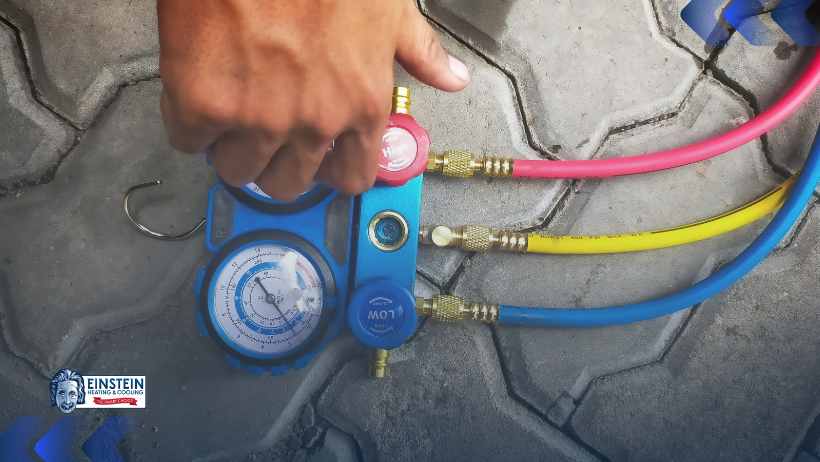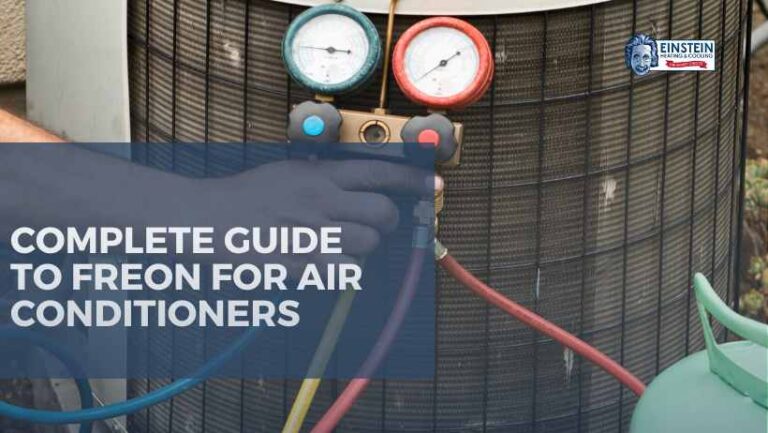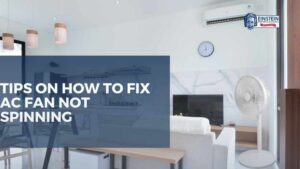When it comes to the efficient functioning of air conditioners, the role of refrigerants cannot be overstated. One of the most widely used refrigerants in air conditioning systems is Freon. In this comprehensive blog post, we will delve into the various aspects of freon for air conditioners, exploring its properties, environmental impact, alternatives, and the importance of proper handling.
What is Freon for Air Conditioners?
Composition and Structure
Freon is a trade name for a group of halocarbon refrigerants that contain carbon, fluorine, chlorine, and occasionally hydrogen. The most common type of Freon used in air conditioners is hydrochlorofluorocarbon (HCFC) or hydrofluorocarbon (HFC). The specific chemical structure of Freon contributes to its ability to absorb heat and facilitate the cooling process within an air conditioning system.
Thermodynamic Properties
Freon undergoes phase transitions easily, shifting from a gas to a liquid and back, making it an ideal candidate for the refrigeration cycle in air conditioners. The thermodynamic properties of Freon enable it to absorb heat from indoor air efficiently as long as HVAC maintenance is done correctly, and maintain a comfortable temperature within the enclosed space.
Environmental Impact of Freon
Ozone Depletion
While Freon has been widely used for its excellent refrigerant properties, it has also been associated with environmental concerns. The chlorine component in certain Freon formulations has been found to contribute to ozone layer depletion. As a result, international agreements, such as the Montreal Protocol, have been established to phase out the production and use of ozone-depleting substances, including certain types of Freon.
Global Warming Potential
In addition to ozone depletion, Freon is known to have a high global warming potential (GWP). GWP is a measure of how much heat a greenhouse gas traps in the atmosphere over a specific period. HFCs, a type of Freon, have a significantly higher GWP compared to other refrigerants. As environmental awareness grows, there is a push towards adopting alternative refrigerants with lower GWP to mitigate the impact of climate change.
Alternatives to Freon
Hydrofluoroolefins (HFOs)
HFOs have emerged as a promising alternative to traditional Freon refrigerants. They are designed to have lower environmental impact, with zero ozone depletion potential and significantly lower GWP. The adoption of HFOs in air conditioners represents a positive step towards more environmentally friendly cooling solutions.
Natural Refrigerants
Another avenue being explored is the use of natural refrigerants like hydrocarbons, ammonia, and carbon dioxide. These substances have minimal impact on the environment and contribute little to ozone depletion and global warming. However, their implementation may require modifications to existing air conditioning systems to ensure safety and efficiency.
The Importance of Proper Handling
Leak Prevention
One critical aspect of using AC freon is the prevention of refrigerant leaks. Freon leaks not only contribute to environmental harm but also result in reduced system efficiency and increased energy consumption. Regular HVAC maintenance and inspections are essential to detect and address potential leaks promptly.
Professional Installation and Servicing
Proper handling of Freon involves the expertise of trained HVAC technicians during installation and servicing. Accurate charging of the refrigerant, adherence to safety protocols, and compliance with regulations are crucial to ensuring the longevity and efficiency of air conditioning systems.
Recycling and Disposal
Given the environmental impact of Freon, responsible disposal and recycling practices are essential. Recycling programs exist to safely recover and reclaim refrigerants, preventing them from being released into the atmosphere. Compliance with disposal regulations is imperative to minimize the ecological footprint associated with Freon.
Freon and Energy Efficiency
System Efficiency
The choice of refrigerant significantly influences the energy efficiency of an air conditioning system. AC freon has been a preferred choice due to its favorable thermodynamic properties, but advancements in refrigeration technology have led to the development of systems that use alternative refrigerants, offering comparable or even superior efficiency.
Energy Consumption
The energy efficiency of an air conditioner is not solely determined by the AC refrigerant but also by the overall design and components of the system. Regular maintenance, proper insulation, and appropriate sizing of the air conditioning unit all play crucial roles in minimizing energy consumption and maximizing efficiency.
Regulatory Landscape and Industry Standards
Montreal Protocol and Phasedown
The Montreal Protocol, an international treaty adopted in 1987, aimed to protect the ozone layer by phasing out the production and consumption of ozone-depleting substances, including certain types of Freon. The phasedown targets set by the protocol have prompted industries worldwide to transition towards environmentally friendly alternatives and improve overall compliance with regulations.
Local Regulations
In addition to international agreements, various countries and regions have implemented their own regulations governing the use of refrigerants in air conditioning systems. These regulations often focus on minimizing environmental impact, reducing emissions, and encouraging the adoption of low-GWP alternatives. Staying abreast of local regulations is crucial for businesses and individuals to ensure the legal and responsible use of Freon.
The Future of Refrigerants
Research and Development
The search for the ideal refrigerant continues as scientists and engineers invest in research and development to discover alternatives that balance efficiency, safety, and environmental impact. Ongoing efforts aim to identify novel substances that can meet the demands of modern air conditioning while minimizing harm to the ozone layer and mitigating climate change.
Technological Innovations
Advancements in air conditioning technology are also playing a pivotal role in shaping the future of refrigerants. Innovations such as variable refrigerant flow (VRF) systems, smart thermostats, and improved insulation contribute to overall energy efficiency, reducing the reliance on high-GWP refrigerants like certain types of Freon.

Consumer Awareness and Choices
Energy-Efficient Appliances
Choosing energy-efficient air conditioning appliances is a key aspect of promoting sustainability. Energy Star ratings and labels provide consumers with information about the energy efficiency of appliances, helping them make choices that align with environmental goals while enjoying the benefits of a well-regulated indoor environment.
Balancing Comfort and Sustainability
Comfort Considerations
While the environmental impact of refrigerants is a critical factor, maintaining indoor comfort is equally important. The challenge for the air conditioning industry is to strike a balance between providing effective cooling solutions and minimizing the ecological footprint. This delicate balance involves considering factors such as temperature control, humidity management, and overall system reliability.
Retrofitting and Upgrading
For existing air conditioning systems that still use certain types of Freon, retrofitting or upgrading to more environmentally friendly alternatives is a viable option. However, it’s essential to consult with qualified HVAC technicians to ensure compatibility and compliance with current regulations. Retrofitting may involve modifications to the existing system, including the replacement of components and adjustments to optimize performance.
How to Repair Freon Issues
Recognizing Signs of Freon Problems
When your air conditioner is not cooling as it should, it’s essential to recognize the signs of Freon issues before attempting any repairs. Here are some indicators that may suggest a Freon problem:
- Insufficient Cooling: If your air conditioner is running but fails to cool your space adequately, it could be a sign of low Freon levels.
- Ice Buildup on Coils: Excessive ice on the evaporator coils is a clear indication of a Freon issue. This ice buildup can impede the heat exchange process, leading to reduced cooling efficiency.
- Hissing or Bubbling Sounds: Unusual sounds, such as hissing or bubbling, may indicate an AC refrigerant leak. Freon leaks are a common cause of reduced cooling performance.
Locating the Freon Leak
Once you’ve identified the potential Freon issue, the next step is to locate the source of the leak. Finding and fixing the leak is crucial for a successful repair. Here’s how you can locate a Freon leak:
- Visual Inspection: Inspect the refrigerant lines, connections, and components for visible signs of oil stains or residue. Oil stains often indicate the presence of a refrigerant leak.
- UV Dye Test: Use a UV dye additive in the refrigerant system. Run the air conditioner, and with a UV light, check for any fluorescent traces of the dye, which will help pinpoint the location of the leak.
- Pressure Testing: A professional HVAC technician can perform a pressure test to identify leaks accurately. This involves pressurizing the system with nitrogen and using pressure gauges to detect any drop, indicating a leak.
Repairing Freon Leaks
After identifying the Freon leak, it’s time to proceed with the repairs. Keep in mind that handling refrigerants requires expertise and should be done by a qualified technician. However, here are some general steps involved in repairing Freon leaks:
- Evacuate the System: Before making any repairs, the refrigerant must be evacuated from the system using specialized equipment. This ensures a safe working environment and prevents the release of Freon into the atmosphere.
- Welding or Patching: Depending on the size and location of the leak, the technician may weld or patch the affected area. Welding is often used for larger leaks, while patching may be suitable for smaller ones.
- Recharge with Freon: Once the leak is repaired, the system needs to be recharged with the appropriate amount of Freon. This should be done following manufacturer specifications and guidelines.
Preventing Future Freon Issues
After successfully repairing the Freon issues in your air conditioner, it’s essential to take preventive measures to avoid future problems. Here are some tips to prevent Freon-related issues:
- Regular Maintenance: Schedule routine HVAC maintenance checks for your air conditioner, including inspections for refrigerant leaks. Timely detection and repair of small leaks can prevent more significant problems later on.
- Clean and Insulate Refrigerant Lines: Keep the refrigerant lines clean and well-insulated to minimize the risk of leaks. Insulation helps maintain the proper temperature and pressure levels within the system.
- Professional HVAC Installation: Ensure that a certified HVAC professional installs your air conditioner. Proper installation reduces the likelihood of Freon leaks and other performance issues.
How Much is the Freon AC?
1. Type of Refrigerant:
When it comes to AC refrigerants, not all refrigerants are created equal. The type of refrigerant used in your AC unit significantly impacts its cost. R22, also known as HCFC-22, was a commonly used refrigerant in older systems. However, due to environmental concerns, its production has been phased out. The newer and more environmentally friendly alternative is R410A. If your system requires R22, the cost can be higher due to its limited availability.
- R22 (HCFC-22): As production decreases, the price tends to rise.
- R410A: Considered more eco-friendly, it is the standard for newer AC units.
2. Refrigerant Phase-Out:
The phase-out of certain types of refrigerants, such as R22, has a direct impact on the cost of Freon for air conditioners. As the production of these refrigerants decreases in compliance with environmental regulations, their availability diminishes, causing an increase in prices.
- Limited Availability: Due to restrictions, finding R22 may become challenging.
- Transition to Alternatives: Embracing newer refrigerants aligns with environmental regulations.
3. Refrigerant Prices:
Freon prices can vary based on market conditions, supply, and demand. Keeping an eye on the current market prices can help you anticipate and budget for the cost of replenishing your AC unit’s refrigerant.
- Market Fluctuations: Prices can change based on global market conditions.
- Supply and Demand: High demand and low supply can lead to increased prices.
4. Service Charges:
In addition to the cost of the refrigerant itself, homeowners should be aware of the service charges associated with refilling or replacing Freon in their air conditioning systems. HVAC professionals typically charge for their time, expertise, and the equipment used during the service.
- Labor Costs: HVAC technicians charge for their time and skills.
- Equipment Fees: Costs may include the use of specialized tools and equipment.
5. Leak Repairs:
Freon leaks are a common issue in air conditioning systems. If your AC unit has a refrigerant leak, it’s essential to address and repair the leak before replenishing the Freon. Ignoring leaks can result in a continuous need for Freon and increased costs.
- Detection and Repair: Costs associated with identifying and fixing leaks.
- Prevention: Regular maintenance can help prevent costly leaks.
6. System Size:
The size and capacity of your air conditioning system influence the amount of refrigerant it requires. Larger systems may require more Freon, resulting in higher costs for replenishment.
- Residential vs. Commercial: Commercial systems generally require more refrigerant.
- Efficiency Matters: More energy-efficient systems may use less refrigerant.
7. DIY vs. Professional Services:
While it may be tempting to tackle air conditioner maintenance on your own, handling refrigerants without proper knowledge and equipment can be dangerous and may lead to additional expenses. Hiring a professional HVAC technician ensures the job is done safely and efficiently.
- Safety Concerns: Handling refrigerants without expertise can be hazardous.
- Professional Expertise: HVAC technicians are trained to handle Freon safely.
8. Age of the System:
The age of your air conditioning system can impact the cost of Freon. Older systems that use phased-out refrigerants may be more expensive to maintain due to limited availability.
- Consider System Upgrades: Upgrading to a newer system may be more cost-effective in the long run.
- Anticipate Future Costs: Older systems may require more frequent Freon replenishment.
Conclusion
In conclusion, understanding the intricacies of Freon for air conditioners is essential for making informed decisions regarding system efficiency, environmental impact, and compliance with evolving regulations. By staying informed, contacting the experts at Einstein Heating and Cooling when needed, and adopting responsible practices in handling refrigerants, we can contribute to a healthier planet while enjoying the comforts of a well-regulated indoor environment.








